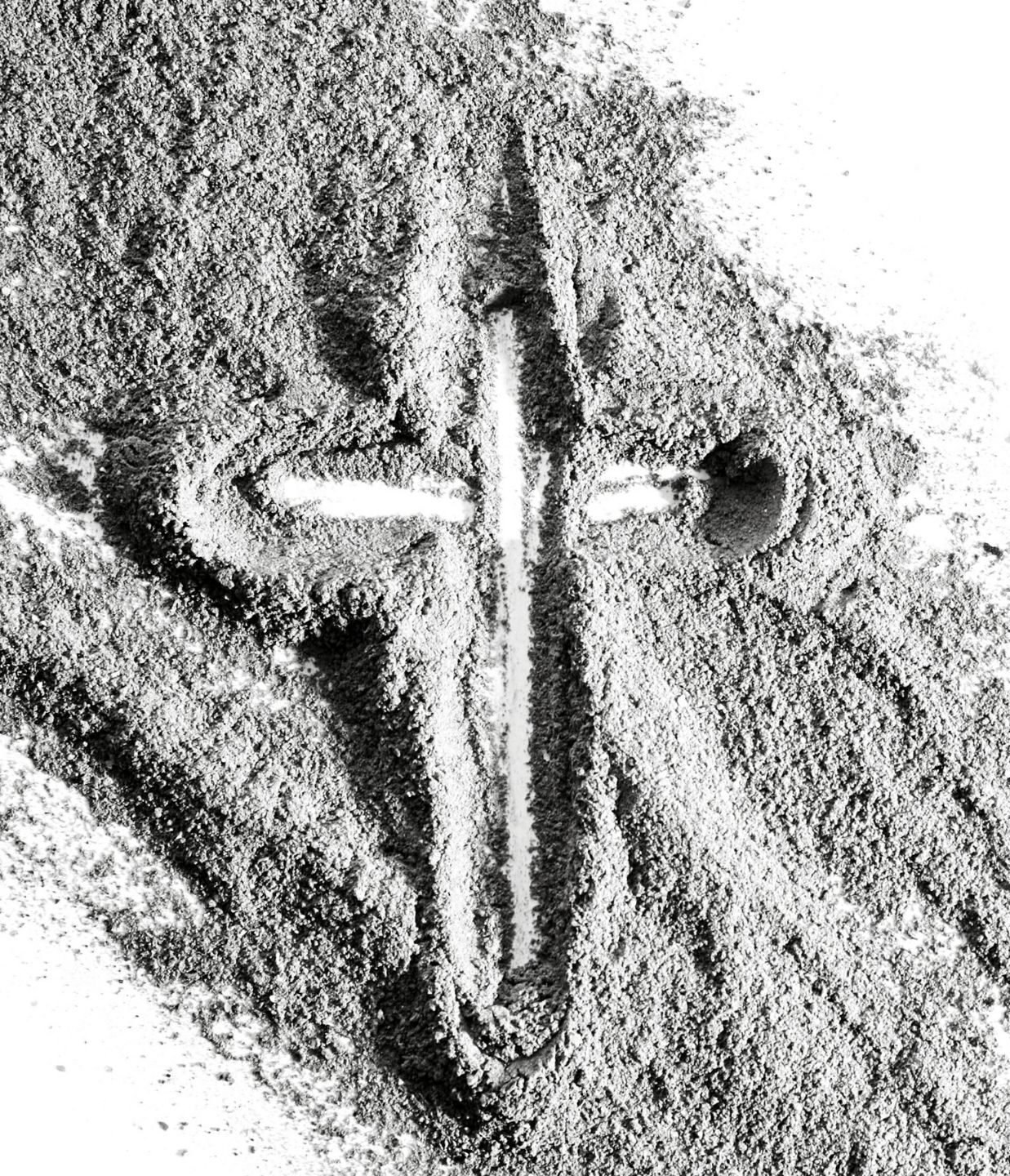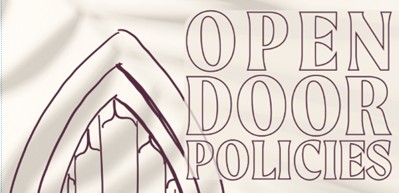In-Person Worship
Saturdays at 5:00pm.
Sundays at 8:00 and 10:30am. (9:00am Memorial Day through Labor Day weekends)
Online Worship: Holy Thursday
Thursday, April 17
Watch the livestream beginning at 6:30 p.m. on Sunday. After the livestream is finished, the video will be available to watch at any time.
Welcome! Thank you for joining us for worship today. In our services we gather before our almighty God to receive his gifts and to offer him our worship and praise. Through God’s powerful Word and Sacraments he renews our faith and strengthens us to serve in joy.
On Thursday of Holy Week, Jesus began to execute the terms of the New Covenant. This New Covenant replaced an old one and was fundamentally different from in it every way. While the Old Covenant was more like a contract, the New Covenant is more like a will. The old offers rewards in return for work; the new makes unconditional and lasting promises. The old will always leave us starving in our relationship with God; the new satisfies the deepest hunger of our soul.
This is precisely why Jesus connected this new covenant with a special meal. To an uninformed outsider, the Lord’s Supper looks like a poor snack—a bite of bread and sip of wine. But the followers of Christ understand that this holy food provides all the blessings of the new covenant.
Music:
- Hymn: CW 417 “It Was a Dark and Dismal Night”
- Psalm 116A “I Will Lift Up the Cup of Salvation”
- Hymn: CW 659 “Jesus Christ, Our Blessed Savior”
- Hymn: CW 658 “With All My Heart I Praise You, Lord”
- Hymn: CW 662 “Draw Near”
Repentance Reflections – Holy Thursday April 17, 2025
Psalm 51:10-13 Pastor Ryan Wolfe
Renewed Through the Gospel
We think of Holy Thursday, also called Maundy Thursday, as a somber occasion. This is the night Jesus was betrayed. In humility, Jesus washed his disciples’ feet. He predicted who would betray him, in the Upper Room. He prayed in Gethsemane that the cup would be taken from him and sweat like drops of blood at the weight of the coming trial. We remember how his disciples couldn’t stay awake. How Judas and a crowd armed with swords and clubs arrested Jesus and how the disciples fled into the night. We reflect on Christ’s trial before the high priest—what a sham it was and what a shame it was that Peter denied knowing Jesus three times. And finally, at the end of our worship, we strip the altar bare as a reminder of the Lord being abandoned by his disciples. The whole time we know that tomorrow we will gather in sorrow over our sins that put Jesus on the cross. Yes, even though we know this three-part service ends Sunday morning in Easter celebration this night is a difficult one.
As we remember this night though, one focal point stands out differently. The most important event of that evening: not a command or a sorrow, but a gift. This is the night Jesus gave us the Sacrament of the Lord’s Supper. Here he gives us his very body and blood that his people for all time might be strengthened in pure gospel. Dear Christians, on this night be renewed through the gospel. The gospel that accomplishes what David prayed for. It creates pure hearts in us. It restores the joy of our salvation.
I. The gospel creates pure hearts.
Listen again to the familiar words of St. Luke’s gospel: “He took bread, gave thanks and broke it, and gave it to them, saying, ‘This is my body given for you; do this in remembrance of me.’ In the same way, after the supper he took the cup, saying, ‘This cup is the new covenant in my blood, which is poured out for you.’”
With these words, Jesus instituted the Sacrament of the Lord’s Supper. At the table in the upper room, Jesus was foreshadowing for his disciples the sacrifice he would make within hours. We remember the blessings he won on the cross for us whenever we celebrate this special meal. But it is not just a memorial as some think. Some have a hard time believing that Jesus actually gives us his body and blood in this meal in a real way. They assume that Jesus’ words “This is my body” and “This is my blood” must have been figurative. Symbolic. The idea of Jesus giving his actual blood and actual body is impossible, so it must not be real, they say.
But with hearts of faith, we take Jesus at his word. It is impossible for us to understand, but we know that nothing is impossible for Jesus. He showed his power in miracles again and again, and this miracle at the altar is no more impossible for him than raising Lazarus from the dead or feeding thousands with a few loaves and fish. If Jesus says it, we believe it. Our ability to understand it is not really an issue. God gives us faith not only to trust in Jesus for a home in heaven, but to trust in his truthfulness and words as well. The gospel of Christ renews our faith and that gospel is what the sacrament is all about.
The words of psalm 51 in front of us tonight are familiar to many of us. For years, we sang these words after hearing sermons as a response to the gospel that was proclaimed to us. In renewed faith after repenting from his sins David penned these words asking God to continue in him what God had already started. Our response to the gospel is the same. The words “create in me a pure heart, O God” is our response to the good news of forgiveness in God’s Word and sacraments. In the Word of God, he tells us he forgives us in the new covenant of grace. In the eating and drinking of the Lord’s Supper, Jesus tells us that by receiving this we received the forgiveness of sins. The same message, just repeated for our assurance. In both forms of the Word we are renewed through the gospel, and God creates pure hearts in us.
That means that in spite of the sins we have committed, heaven is ours. It means that even though we are by nature sinful, heaven is ours. It means that though we continue to bring sorrow to ourselves and others because of our sin, heaven is ours. By the work of Christ alone the sacrificial giving of body and blood on the cross, we are credited with pure hearts by God.
And so, with pure hearts, we thank and praise our Savior with our lives. David didn’t just thank God for forgiveness and go on sinning. He prayed that repentance and forgiveness would bear fruit in his life. That his spirit would be steadfast in God’s promises. That his joy of his salvation would make his spirit willing to live and serve the God of grace who saved and sustained him.
II. The gospel restores our salvation joy.
And on this night when we remember Jesus in the Upper Room, we see how well God knows the people he created. He knows our forgetfulness. Our tendency to be absorbed by worldly concerns. Our weakness to see things from the world’s viewpoint. So Jesus gives this meal for our assurance. Our reminder. It’s a reminder that Jesus offered himself as the sacrifice for sin two thousand years ago on a cross outside Jerusalem, and it’s still good for us today. When we celebrate the Lord’s Supper, Jesus’ sacrifice isn’t being repeated. It’s being remembered. It’s being reinforced into the minds of forgetful sinners who forget just how gracious our God is and how thorough our Savior’s work of redemption was.
In this miraculous meal the Lord restores to us the joy of our salvation as he feeds us with Jesus’ body and blood, not in some mystical spiritual way, but in a real way. A miraculous way, but a real way nonetheless. Jesus spoke plainly. This IS my body. This IS my blood.” And wherever the body and blood of Christ is, there is forgiveness for sin. In this meal Jesus renews us through the Gospel as he assures us that the new covenant of forgiveness remains in effect. The sins of the past days, the past weeks since we last ate the meal are just as forgiven as the forgotten sins before. Here Jesus strengthens our faith in his promises and equips us for lives of service to others. In the Lord’s Supper, the Lord gives lavishly. And we receive with joy.
We come to the table remembering our sinfulness and relying entirely on God’s grace. And we leave confident that he will forgive our sins in Christ. I’ve asked members before whether we should hang our heads in solemness or raise our eyes in joy at the Supper. The answer is both. At the Lord’s Supper we see the cross, the reminder of our sin’s seriousness but also the lasting testament to sin’s removal.
What the Lord says about the Sacrament is what we want to teach others so that they too may know the joy of the Lord’s salvation. David wrote in Psalm 51, a thousand years before Jesus ate this meal with his disciples, “I will teach transgressors your ways, so that sinners will turn back to you.” And we do this as well in the Lord’s Supper. Sometimes our gathering is misunderstood because we don’t allow everyone to partake of the Lord’s Supper. Others may even think we’re being arrogant when we invite only some to the table. But that’s not the case. We’re following the Lord’s direction when he says this meal expresses a unity in faith. We’re taking God’s Word in 1 Corinthians 11 seriously when it says that those who don’t recognize the Lord’s body and blood, those who don’t know the purpose of the meal, would take it only their harm instead of their good. Like David, we want to teach sinners God’s way, so that they might see not just a ritual or a remembrance – that they would see the gospel in this meal. The body and blood given for the forgiveness of their sins. The love and teachings of Christ that unite us not in just bare essentials, but in all the truth of God. This meal is a meal of love hard-earned. And love for the one who earned it guides the way we practice it.
And so, in the end is Holy Thursday a day of solemn sorrow? Yes. Tonight we remember our Savior betrayed, arrested, beaten, and tried for crimes he didn’t commit. But that same night, he gave us this great gift of love. Each time we receive the Lord’s Supper, we receive the very body and blood he sacrificed for us for the forgiveness of our sins. Partake as often as you can. Be renewed through the gospel. Let the pure heart that your Savior created in you be strengthened. And may the joy of your salvation be restored. This is the heart of Holy Thursday. Not the command, but the promise. Praise our God of grace with hearts of peace and hope. Amen.
TV Services
Our full weekend worship service is broadcast on Valley Access – Channel 18. Contact Valley Access at vactv.org for broadcast times.


